Презентація на тему «Global issues»
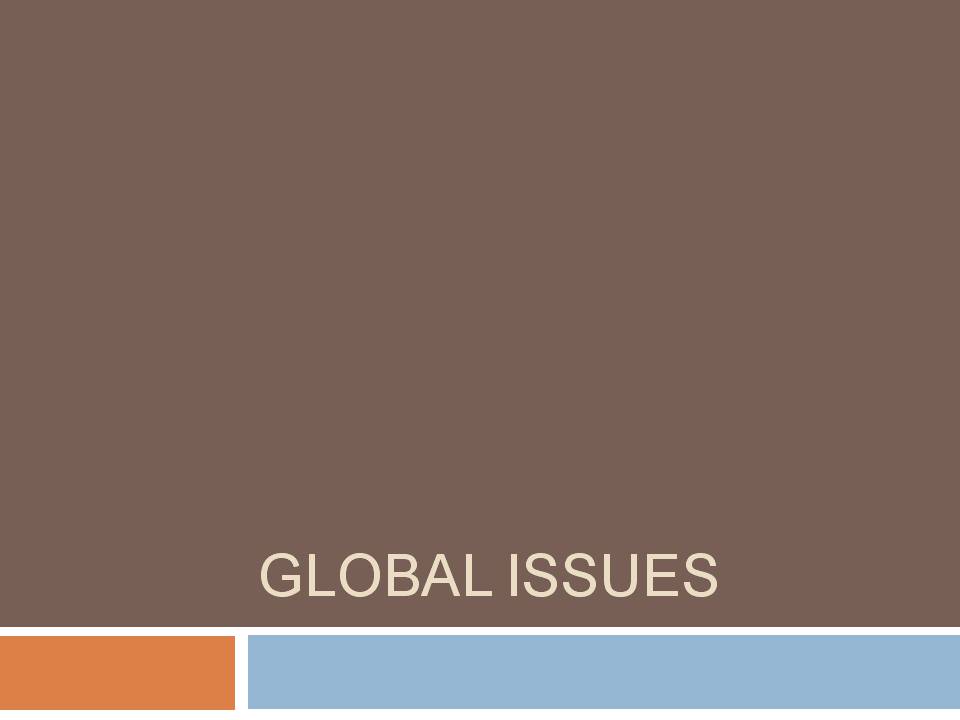
Global issues
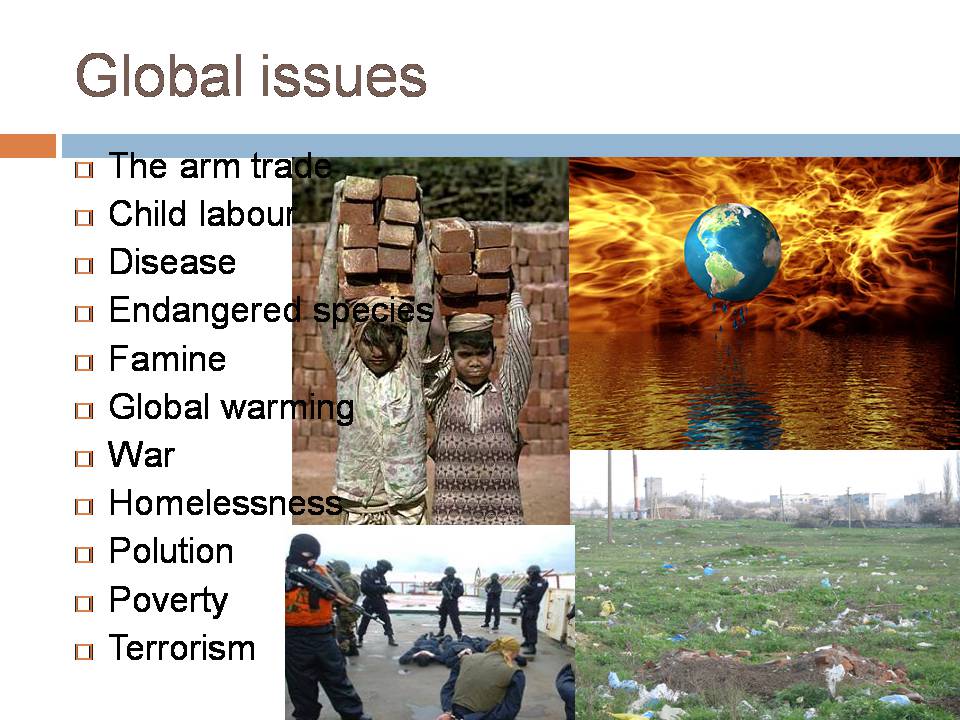
Global issues
The arm trade
Child labour
Disease
Endangered species
Famine
Global warming
War
Homelessness
Polution
Poverty
Terrorism
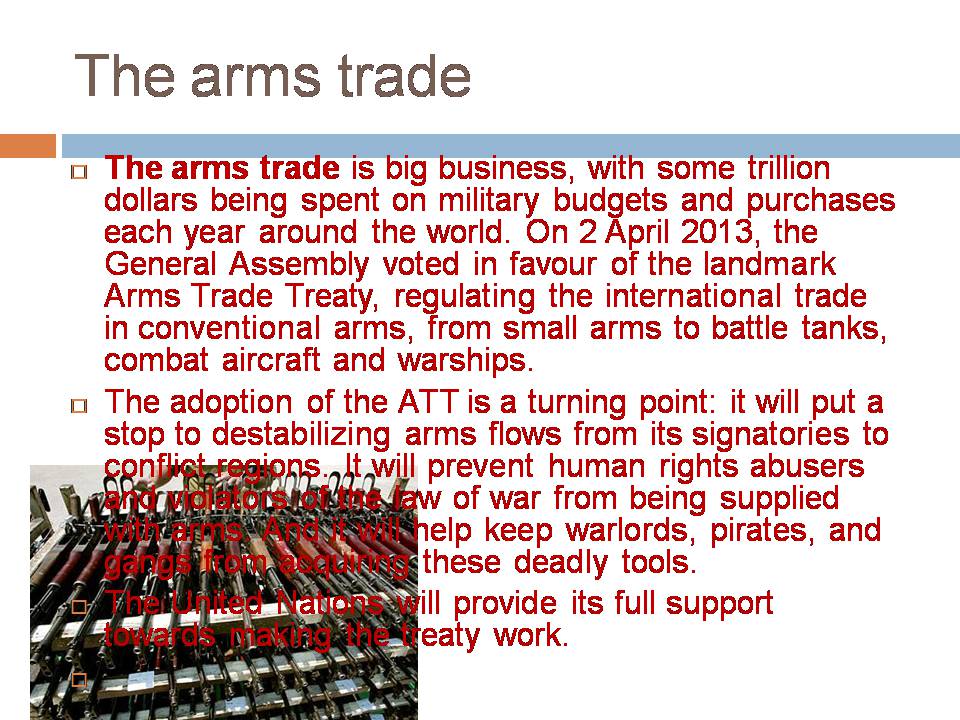
The arms trade
The arms trade is big business, with some trillion dollars being spent on military budgets and purchases each year around the world. On 2 April 2013, the General Assembly voted in favour of the landmark Arms Trade Treaty, regulating the international trade in conventional arms, from small arms to battle tanks, combat aircraft and warships.
The adoption of the ATT is a turning point: it will put a stop to destabilizing arms flows from its signatories to conflict regions. It will prevent human rights abusers and violators of the law of war from being supplied with arms. And it will help keep warlords, pirates, and gangs from acquiring these deadly tools.
The United Nations will provide its full support towards making the treaty work.
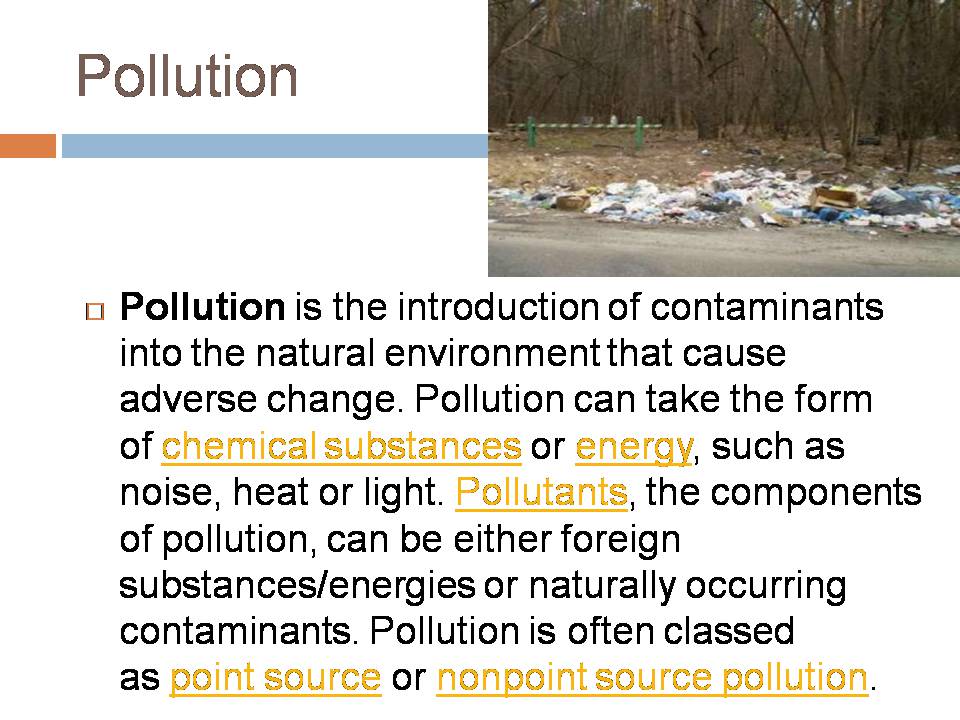
Pollution
Pollution is the introduction of contaminants into the natural environment that cause adverse change. Pollution can take the form of chemical substances or energy, such as noise, heat or light. Pollutants, the components of pollution, can be either foreign substances/energies or naturally occurring contaminants. Pollution is often classed as point source or nonpoint source pollution.
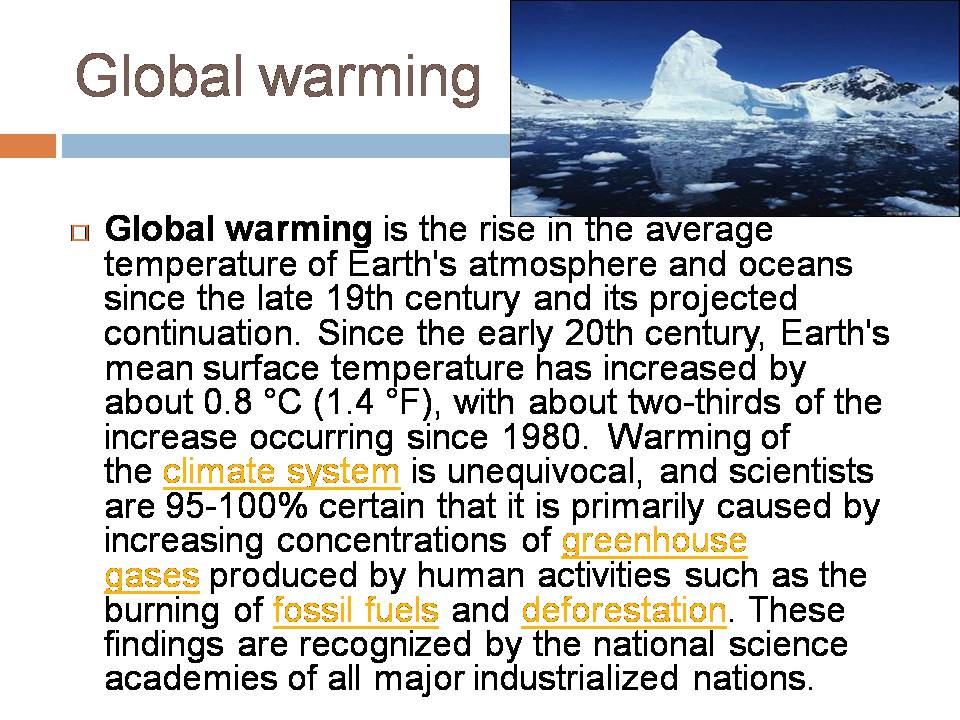
Global warming
Global warming is the rise in the average temperature of Earth's atmosphere and oceans since the late 19th century and its projected continuation. Since the early 20th century, Earth's mean surface temperature has increased by about 0.8 °C (1.4 °F), with about two-thirds of the increase occurring since 1980. Warming of the climate system is unequivocal, and scientists are 95-100% certain that it is primarily caused by increasing concentrations of greenhouse gases produced by human activities such as the burning of fossil fuels and deforestation. These findings are recognized by the national science academies of all major industrialized nations.
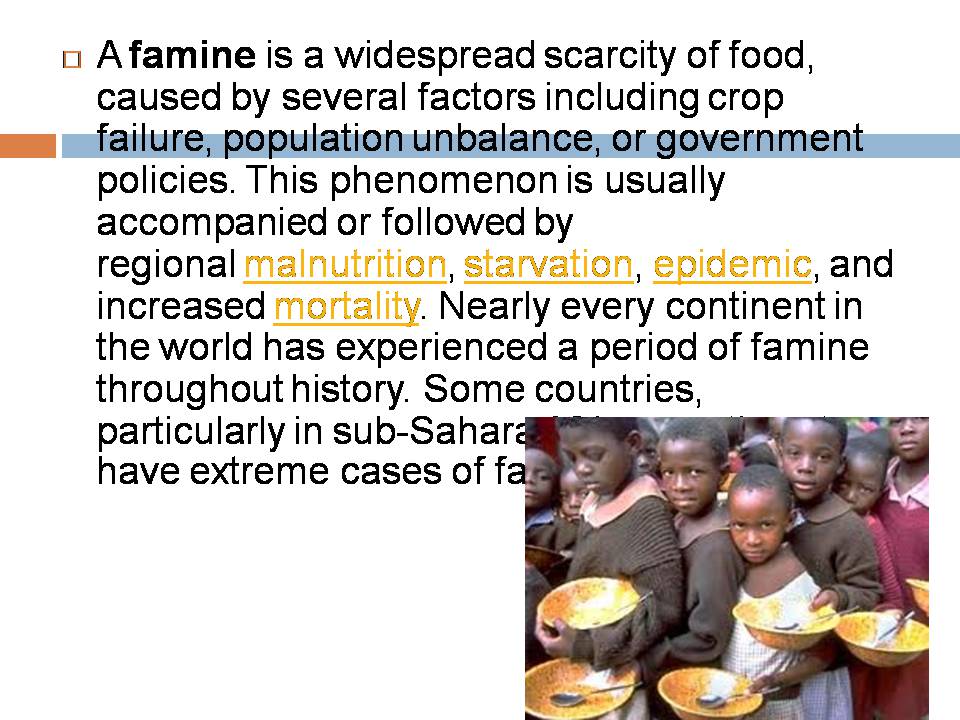
A famine is a widespread scarcity of food, caused by several factors including crop failure, population unbalance, or government policies. This phenomenon is usually accompanied or followed by regional malnutrition, starvation, epidemic, and increased mortality. Nearly every continent in the world has experienced a period of famine throughout history. Some countries, particularly in sub-Sahara Africa, continue to have extreme cases of famine.
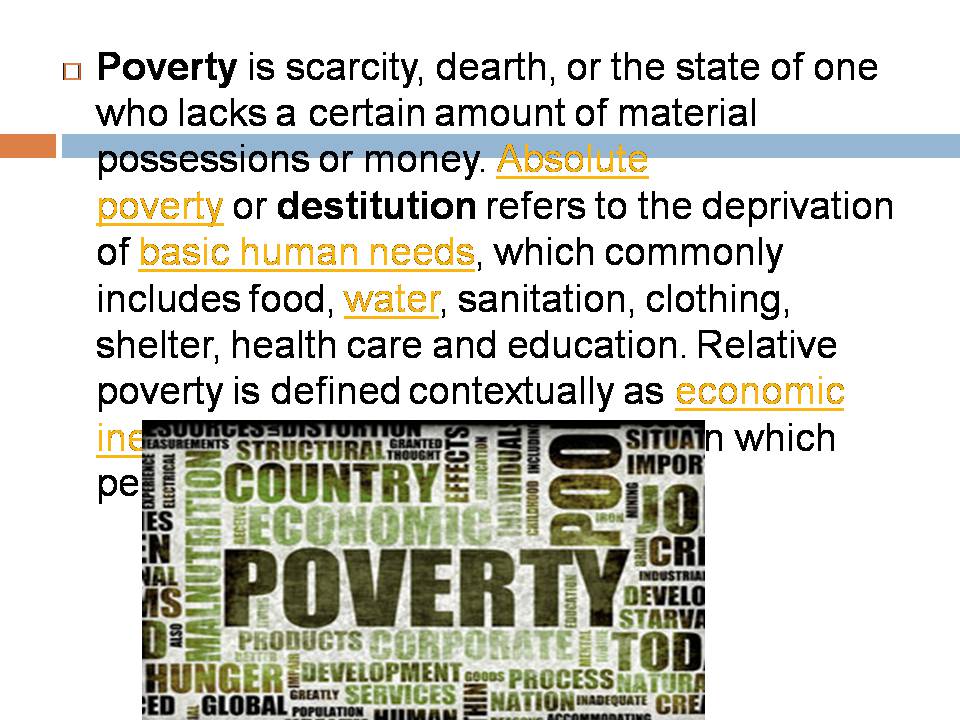
Poverty is scarcity, dearth, or the state of one who lacks a certain amount of material possessions or money. Absolute poverty or destitution refers to the deprivation of basic human needs, which commonly includes food, water, sanitation, clothing, shelter, health care and education. Relative poverty is defined contextually as economic inequality in the location or society in which people live.
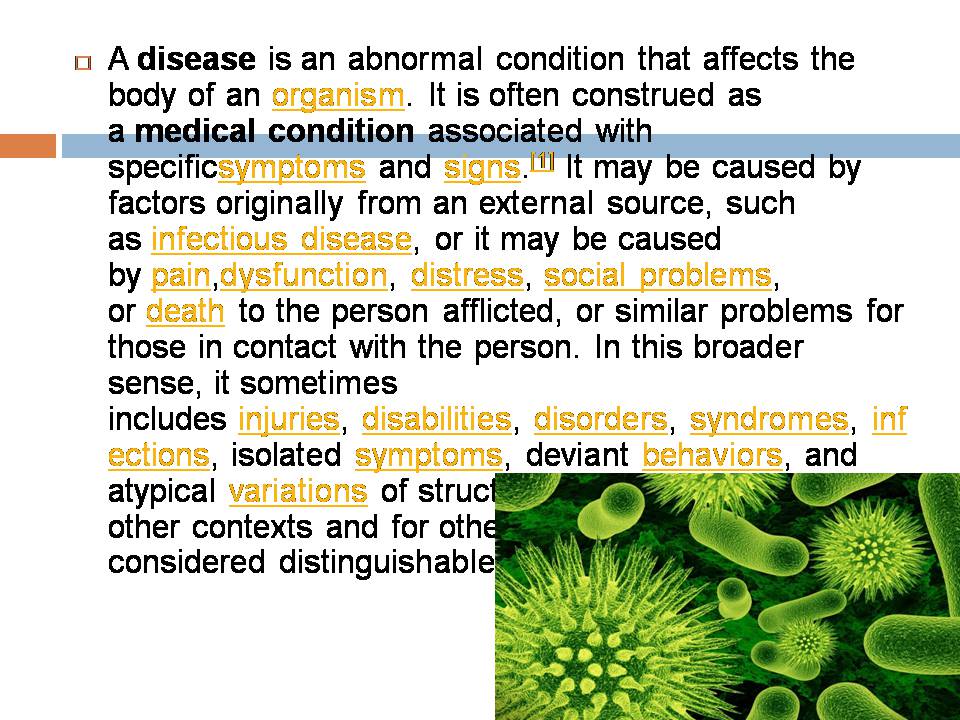
A disease is an abnormal condition that affects the body of an organism. It is often construed as a medical condition associated with specificsymptoms and signs.[1] It may be caused by factors originally from an external source, such as infectious disease, or it may be caused by pain,dysfunction, distress, social problems, or death to the person afflicted, or similar problems for those in contact with the person. In this broader sense, it sometimes includes injuries, disabilities, disorders, syndromes, infections, isolated symptoms, deviant behaviors, and atypical variations of structure and function, while in other contexts and for other purposes these may be considered distinguishable categories.
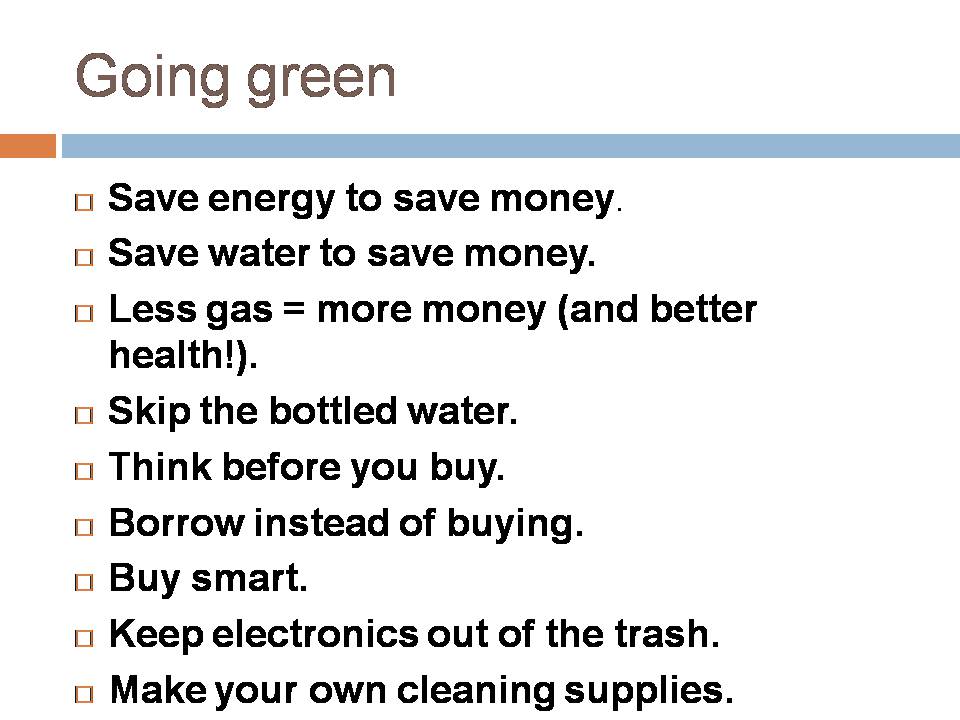
Going green
Save energy to save money.
Save water to save money.
Less gas = more money (and better health!).
Skip the bottled water.
Think before you buy.
Borrow instead of buying.
Buy smart.
Keep electronics out of the trash.
Make your own cleaning supplies.
